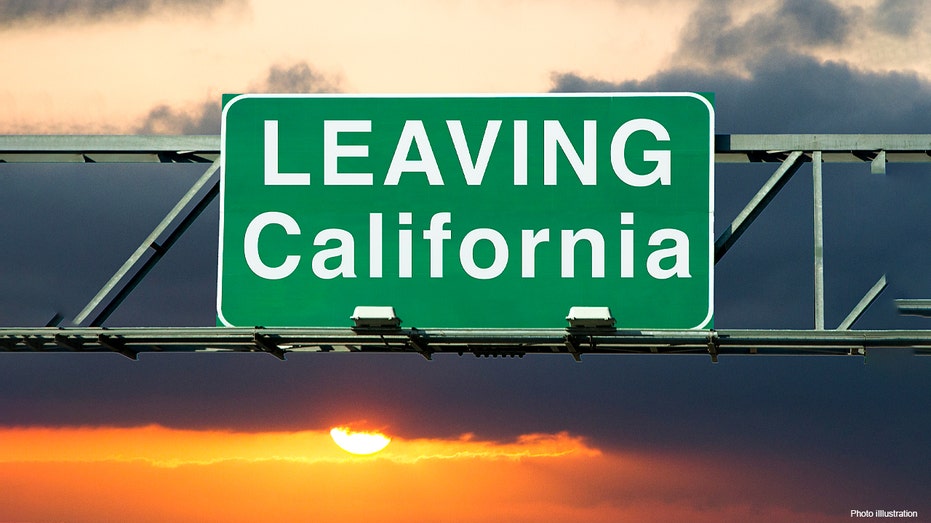California is killing another industry that families need
Government control and over-regulation are driving insurers out of California
California lawmakers calling for 4-day work week 'ridiculous': Rex founder
Peter Rex, the CEO of Rex, a technology, investment and real estate firm that moved from California to Texas, argues his company would not 'flourish' under a to 32-hour work week.
California is destroying an industry that working families and job creators desperately need.
Insurance companies are now fleeing the state, driven away by the strangling red tape of government bureaucracy. Will this alarming trend spur other states to foster competition and innovation, or will they follow in California's footsteps, leaving citizens grappling with dwindling options and skyrocketing prices?
This question urgently needs to be answered now that the nation’s largest property insurer, State Farm, has announced it will no longer sell home-insurance policies in California. The late May decision follows a similar call by insurance giant GEICO, which closed all sales centers in the state last year.

Insurance companies are now fleeing California, driven away by the strangling red tape of government bureaucracy. (istock / iStock)
Experts have shown how insurance companies have been "quietly fleeing" the state for years. This is a crisis of the state's own creation, with its consequences borne disproportionately by families and small businesses.
I say this as the CEO of insurance and real estate companies. I also moved my business out of California several years ago, largely because the state makes it harder to serve customers. I firmly believe that State Farm had no choice but to leave California. If it had stayed, it would have been regulated to death.
This reality is implicit in the company’s announcement. State Farm lays the blame at the foot of "increases in construction costs outpacing inflation, rapidly growing catastrophe exposure, and a challenging reinsurance market."
These are real problems, but any insurance company can simply price them into their policies. What can’t be priced is government control and over-regulation. That’s what’s really driving State Farm out of California.
Douglass Murray: Do you want to live in a state like Florida or California?
Fox News contributor Douglass Murray looks ahead to 2024 and other possible presidential contenders for the Republican ticket on 'The Bottom Line.'
Consider what State Farm has gone through in the past few years. In light of soaring costs, it recently tried to raise the price of fire insurance. Instead, the state forced the company to cut rates. That’s a quick way to drive companies out of business, since they can’t make enough money to cover payments to people who file claims. This is Economics 101, which apparently doesn’t get taught in California classrooms.
This example highlights the reams of red tape squeezing insurance companies from every side. The California Department of Insurance is wildly powerful, essentially deciding what policies companies sell, what price they charge, and their day-to-day operations. At that point, a company isn’t really a company. It’s an arm of the state.
The government is also responsible for the soaring costs that State Farm noted. Wildfires are so destructive because the state hasn’t given enough funding to thin out forests – the number-one thing experts say the state should do to stop fires.
CEO Michael Seifert on moving HQ from California to Florida: Operating in The Golden State is ‘overburdensome’
PublicSq. founder and CEO Michael Seifert and Colombier Acquisition Corp Chairman and CEO Omeed Malik discusses the company’s decision to move its headquarters from California to Florida.
And when it comes to home prices, California makes them more expensive by mandating that new homes include things like solar panels, which cost $20,000 or more. That helps explain why California home prices are more than twice as expensive as the national average.
Is climate change a piece of the puzzle? Maybe. But California’s economic climate is ultimately what’s killing companies and leaving families in the lurch. In its zeal to crack down on insurance companies, the state is actually cracking down on the everyday people who need insurance for their homes, their cars, and their health.
Working families will suffer the most from this government-driven exodus, yet they’re receiving the least attention.
Tech entrepreneur Peter Rex explains decision to move company from West Coast to Texas
Peter Rex, founder and CEO of Rex Teams, joins Pete Hegseth on 'Fox & Friends.'
And the situation could get even worse. Think about what happens when insurance companies pull out of a state. There’s less competition, which means prices will rise even higher. Families and job creators are now set to pay even more for their insurance. And since California continues to control the insurance market and over-regulate companies, more and more are going to leave.
GET FOX BUSINESS ON THE GO BY CLICKING HERE
Think what that means. Not only is the state in a death spiral of higher prices, but it could soon reach a place where home insurance is impossible to find. At that point, everyone will have to turn to the state’s famously bare-bones home-insurance plan. Lawmakers will be forced to raised taxes even higher, yet just like homelessness, gas prices and everything else in California, the crisis will only get worse.
California is finding this out the hard way. But other states don’t have to, and neither does Washington, D.C. Elected officials should be doing everything in their power to keep competition high and costs low. That means taking a light touch with mandates and avoiding the heavy hand of government. As California proves, the heavier that hand gets, the more it hurts the very people it’s supposed to help.























